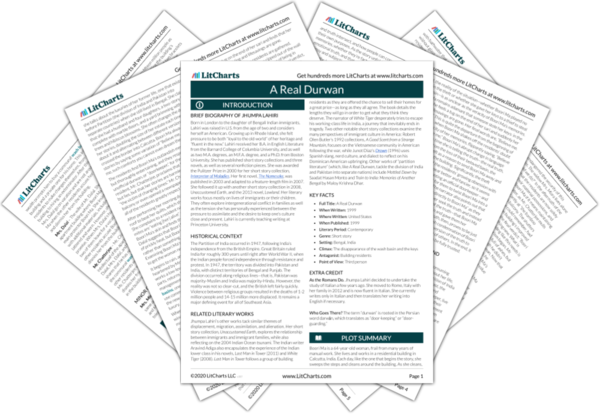The keys Boori Ma carries symbolize access, not only to the physical structure of the apartment building where she lives and works, but also to a particular way of life. Having lost all of her wealth and status after the Partition of India and Pakistan, the jingle of the skeleton keys on the end of her sari is constant reminder of her diminished role in society and the position and duty she now holds. Yet even this lower class is a significant improvement upon the destitute poverty of living as a displaced refugee, and the keys are her only access to the security and livelihood that her job as an unofficial durwan, or “doorkeeper,” offers her. Boori Ma is not of the same class and society as the other residents of the building, yet she lives among them, visits with them, and earns their respect. Once the keys are stolen, though, she loses access to that life, and the apartment residents throw her out onto the street. From that point on, the proverbial door is closed, and she is once more on her own to navigate the uncertainty of her life as a solitary, impoverished woman.
The Skeleton Keys Quotes in A Real Durwan
It was there, while she was standing in the shopping arcade surveying jackfruits and persimmons, that she felt something tugging on the free end of her sari. When she looked, the rest of her life savings and her skeleton keys were gone.
Though none of them spoke directly to Boori Ma, she replied, “Believe me, believe me. I did not inform the robbers.”
From the pile of belongings Boori Ma kept only her broom. “Believe me, believe me,” she said once more as her figure began to recede. She shook the free end of her sari, but nothing rattled.












